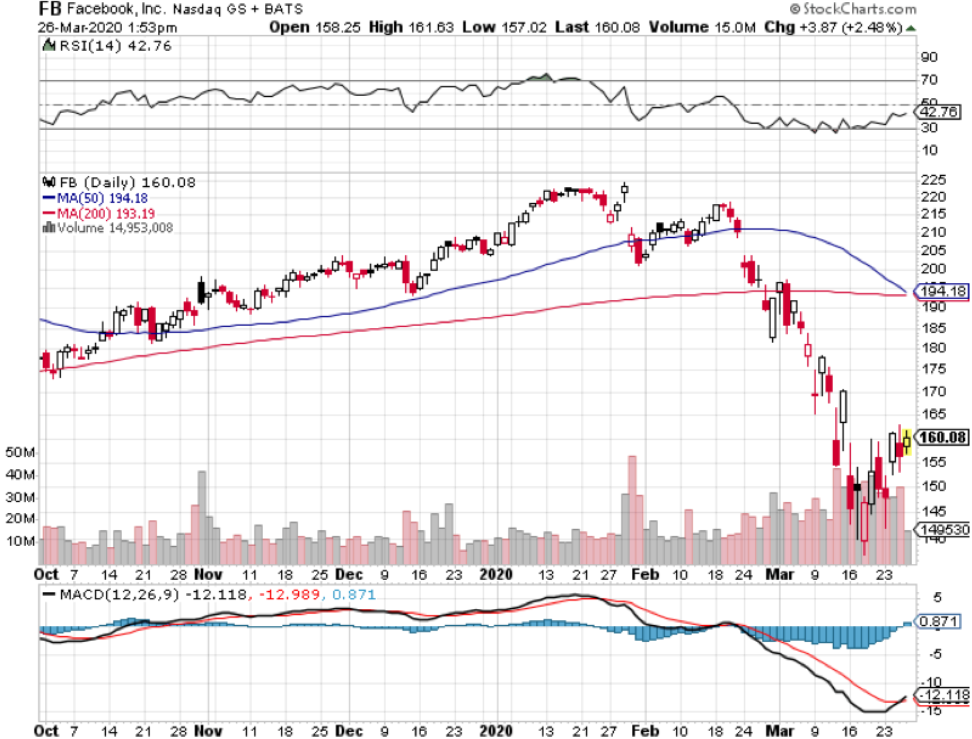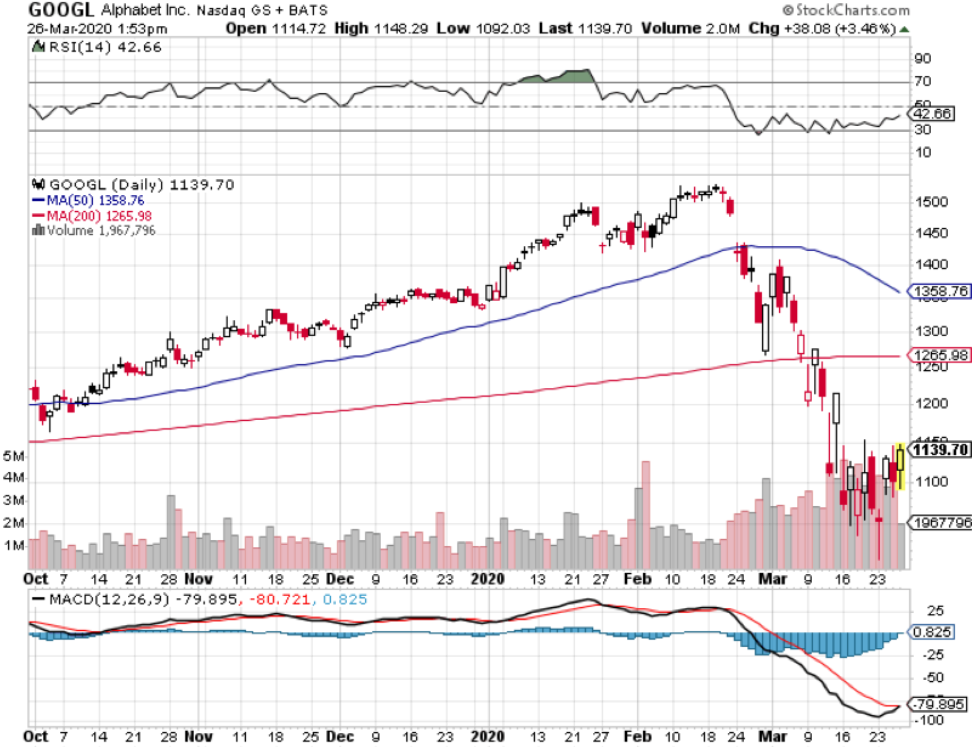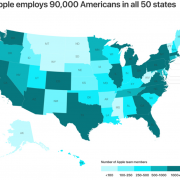The Coming Ad Hit for Google and Facebook
Expect lower revenues from Facebook (FB) and Google (GOOGL) because ad revenue has taken a hit.
It makes no sense to spend ad money on Facebook and Google ads for restaurants and hotels during times like this and that’s if they even still exist today.
The accumulative effect of the bankruptcies in other parts of the economy will shrink Google and Facebook’s ad dollar coffers.
The two internet giants together could see more than $44 billion in worldwide ad revenue evaporate in 2020, but that doesn’t mean these companies won’t be profitable.
For 2020, Google's total net revenue is now projected to be about $127.5 billion, down $28.6 billion for the year.
Facebook’s management said there was “a weakening in the ads business in countries taking aggressive actions to reduce the spread of COVID-19.”
Facebook’s overall usage has increased during the pandemic, with data up more than 50% over the last month in countries hit hardest by the virus, but the spike in volume isn’t in a form in which they can monetize it.
In 2021, Facebook’s advertising business is projected to recover growing 23% year-over-year to $83 billion.
I now expect Google to generate $54.3 billion in operating income (43% adjusted EBITDA margin) and Facebook will make $33.7 billion (49% margin), in 2020.
Digital platforms have felt the abrupt halt in spending, given the relative ease of stopping ad spend.
Secondary ad companies are also performing worse than expected with forecasted revenue for Twitter (TWTR) down by 18% (to expected revenue of $3.2 billion) while Snap (SNAP) ad revenue is expected at $1.66 billion, 30% lower.
Amazon’s ad business boasts a fortified moat because their revenue comes from product searches and those have experienced a surge in demand because of the coronavirus.
Facebook-owned WhatsApp has increased by 50% and that number is up 70% in Italy as the Italians go through a severe outbreak and lockdown.
Another side effect from the virus is the reduction of video streaming quality to ease the strain on internet networks, as YouTube and Netflix (NFLX) have also done.
Facebook is monitoring usage patterns in order to make the system more efficient, and add further capacity as required.
To help ameliorate potential network congestion, they temporarily reduced bit rates for videos on Facebook and Instagram in certain regions.
Facebook is conducting tests and further preparing to respond to any problems that might arise with network services.
Facebook and Google’s weakness proves that even the largest of Silicon Valley tech companies are battling with revenue restructuring while waiting for the U.S. economy to open up.
Although this is terrible news for Facebook and Google, the Nasdaq index is in the process of bottoming out.
The 3.28 million U.S. jobless claims were unprecedented but could very well represent a flushing out of the horrible news as the Nasdaq index spiked by 4% intraday.
Tech shares have had this job claim number baked into the share price for quite a while and we knew it was going to drop like an atomic bomb.
Some estimates had 4 million unemployed and the pain on main street is real, just search on Twitter – hashtag #lostmyjob.
The anecdotes stream down about individuals coming to grips with a sudden sacking and new reality of zero income.
This is just the first phase of job removals and the silver lining is that tech companies largely avoided the worst of the firings partly because many tech jobs can be moved remotely unlike many hospitality jobs.
The other silver lining is that the health scare is supercharging the digital ecosystem as society has effectively been moved online.
Any short-term weakness in tech companies will only be brief as tech stock will lead the recovery as the economy starts to open up again and the record amount of fiscal stimulus breathes life into hobbled companies.
Tech investors should prepare to pull the trigger.




